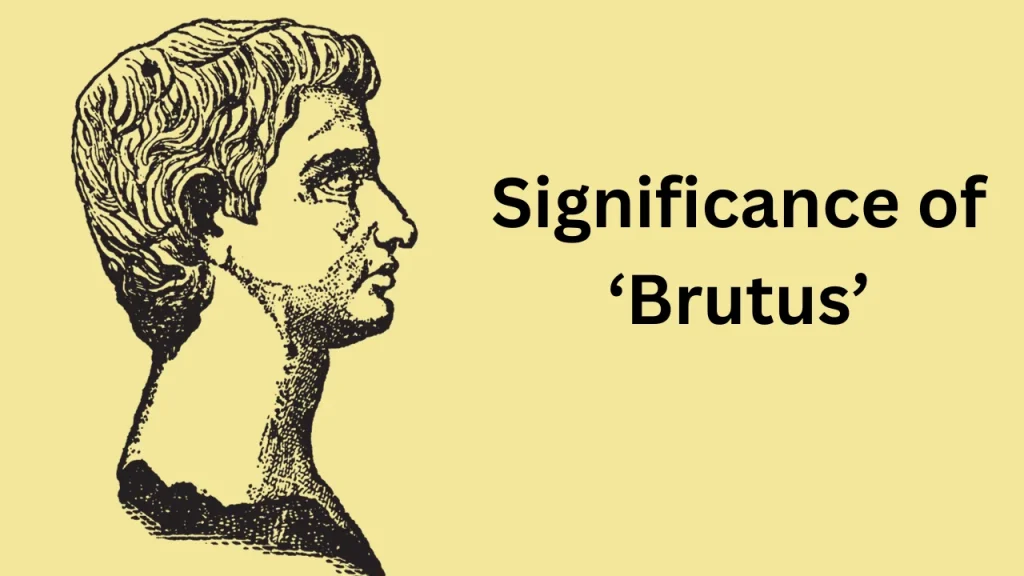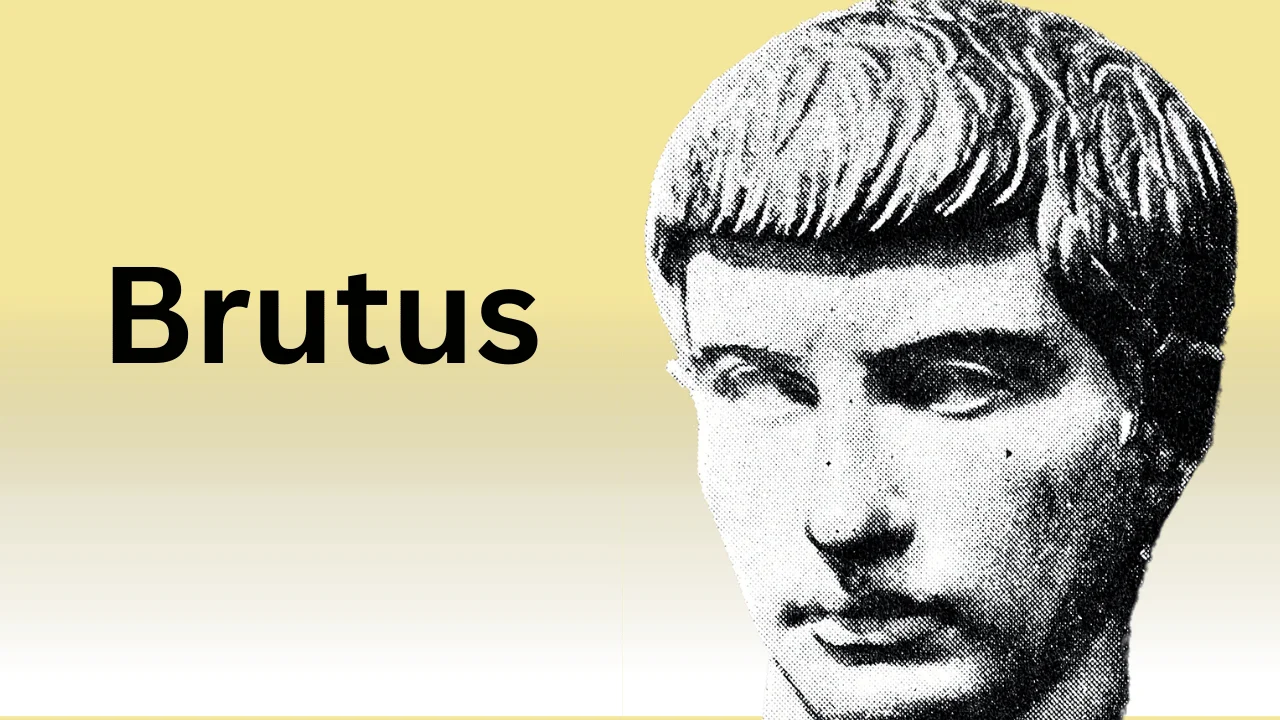Legacy of Brutus
“The term ‘Brutus’ has a distinct and diverse meaning in a range of contexts, including modern culture, literature, and history. Originating from ancient Roman history and gaining prominence through literature and contemporary references, ‘Brutus’ continues to captivate the imagination and intrigue of people worldwide. This comprehensive exploration aims to shed light on the diverse dimensions and significance associated with ‘Brutus’, tracing its origins, analyzing its contextual relevance, and delving into its lasting impact.”
Origins of ‘Brutus’
Ancient Roman History
- In the annals of ancient Rome, ‘Brutus’ emerges as a pivotal figure in the narrative of the Roman Republic’s transformation into an empire. His association with the downfall of Julius Caesar, his mentor, and subsequent establishment of the Roman Republic lends ‘Brutus’ an aura of both heroism and betrayal.
Literary Depictions
- William Shakespeare’s immortalized rendition of ‘Brutus’ in his play, “Julius Caesar,” further cemented the character’s legacy. Through the Bard’s interpretation, ‘Brutus’ embodies the complexity of moral dilemmas, patriotism, and political upheavals, resonating with audiences across centuries.
Significance of ‘Brutus’

Symbolism and Allegory
- ‘Brutus’ serves as a symbol of conflicting values, often representing the struggle between loyalty and the greater good, morality and political expediency. This duality makes ‘Brutus’ a compelling figure whose actions prompt introspection into the nature of power, ethics, and personal conviction.
Cultural Impact
- Beyond literature and history, ‘Brutus’ transcends into popular culture, inspiring adaptations in various art forms. From theater productions to modern films and even video games, his character continues to resonate and evolve, reflecting contemporary society’s interpretations and reinterpretations.
Related Use
In the modern lexicon, ‘Brutus’ finds applications beyond historical and literary realms. His name has a deeper resonance with themes of betrayal and disillusionment in interpersonal relationships or political settings, since it frequently connotes a traitor or someone who violates trust.
Brutus and Julius Caesar
From Mentor to Adversary
- The relationship between Brutus and Julius Caesar is one of the most intriguing aspects of his story. Initially, Brutus was a close ally and protégé of Caesar. However, as Caesar’s power grew, Brutus found himself torn between his loyalty to Caesar and his dedication to the Roman Republic. This conflict is emblematic of the struggle between personal bonds and civic duty, a theme that resonates profoundly in both historical analysis and literary interpretations.
The Ides of March
- The assassination of Julius Caesar, led by Brutus and his fellow senators, marks a pivotal moment in Roman history. This act, motivated by the desire to prevent Caesar from becoming a dictator, is often seen as both a brave stand for republicanism and a grievous betrayal. The repercussions of this event were far-reaching, leading to civil wars and the eventual establishment of the Roman Empire under Augustus.
Brutus as a Political Figure
Advocate for the Republic
- Brutus’s political life was largely defined by his staunch support for the Roman Republic. He is often celebrated as a defender of republican values against the rise of autocracy. His actions, though controversial, were driven by a vision of Rome governed not by emperors but by laws and elected representatives.
Legacy in Political Thought
- The figure of Brutus has been a point of reference in political discourse for centuries. He is frequently cited in discussions about the balance of power, the role of citizens in governance, and the ethics of political resistance. His legacy continues to influence modern political thought, particularly in debates regarding the limits of authority and the right to oppose tyrannical rule.
Brutus in Art
Beyond Shakespeare
- While Shakespeare’s portrayal is the most renowned, Brutus has been a subject of interest in various other literary and artistic works. Poems, novels, and plays have explored his character, often focusing on his internal conflict and the moral implications of his actions.
Visual Representations
- In art, Brutus has been depicted in numerous forms – from Roman busts and Renaissance paintings to contemporary art. These portrayals often reflect the artist’s interpretation of Brutus as either a hero or a betrayer, and contribute to the ongoing discussion about his character and motives.
Brutus and Republicanism
Democratic Ideals
- In the context of republicanism, Brutus is often seen as a symbol of resistance against tyranny. His dedication to the Roman Republic has made him an emblematic figure in discussions about democracy and the rights of citizens to challenge their rulers.
Modern Republican
- The legacy of Brutus has had a significant impact on the development of republican ideas throughout history, influencing thinkers and political leaders who have sought to uphold the principles of democratic governance and civic responsibility.
An Enduring Symbol
- In the collective consciousness, Brutus endures as a symbol of the struggle between personal loyalty and the greater good. His story continues to resonate, highlighting the timeless relevance of his life and actions.
For More Visit: Lily Starfire Encore
Final Words
In conclusion, ‘Brutus’ encompasses a legacy that transcends time, resonating across diverse realms and leaving an indelible mark on the collective consciousness. The enigmatic nature of ‘Brutus’ ensures that his story continues to be retold, reimagined, and revered, inviting perpetual contemplation and discourse.
With a blend of historical reverence, literary depth, and modern adaptability, ‘Brutus’ remains an enduring symbol whose relevance and resonance persist, making him a captivating figure worthy of continued exploration and reflection by both scholars and enthusiasts alike.
